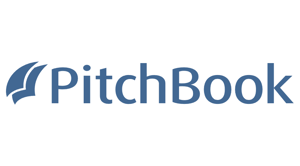Revolutionizing Population Health Outcomes with Clinically-Validated Predictive Insights. PulseData Harnesses AI to Address Chronic Disease Underdiagnosis, Undertreatment, and Health Inequities.
PulseData's advanced AI models and predictive capabilities are paving the way for a future where early detection and intervention are the norm, leading to improved outcomes and a higher quality of life for individuals affected by chronic conditions.
Process only the data needed to improve care and get data from key sources to close information gaps.
Nuanced models specific to individual patients, trained on millions of complex patient journeys, predict chronic disease progression.
Understand the risk progression for each patient, with a disease-specific care summary and highlighting interventions needed to improve care.
Directing the right patients to the right program at the right time, maximizing the performance of your care team.
PulseData is dedicated to ensuring the privacy, confidentiality, and availability of the data entrusted to us by our customers. We pursue ever-higher standards of security with newer systems, technologies, and practices with respect to data security.
PulseData helps payers, providers, and value-based care organizations to effortlessly convert data into precise and comprehensible predictive models. By leveraging our platform, you can seamlessly transform your data and unlock valuable insights for improved decision-making.

Identify, diagnose, understand members and providers better
Identify, diagnose, understand members and providers better.
PulseDataAI delivers patented Machine Learning and Artificial Intelligence healthcare analytic data models, helping healthcare organizations understand their populations better, identify chronic diseases sooner, and deploy more effective care delivery.

Predict outcomes using AI/ML and pattern matching
Predict outcomes using AI/ML and pattern matching.
Our advanced ML/AI models transform complex and disparate data sources into actionable information delivering crucial clinical insights directly to the point of care.

Automate simple actions, track outcomes and effectiveness over time
PulseData helps Payers, Providers, Payviders, ACOs and other VBC organizations improve outcomes and reduce costs by directing the right patients to the right program at the right time. Our predictive analytics reinforce care management team plans, driving more timely interventions for patients most in need.

Quickly and efficiently build the materials you need to support your inbound marketing strategy. Drag and drop building blocks including testimonials, forms, calls-to-action, and more.

Quickly and efficiently build the materials you need to support your inbound marketing strategy. Drag and drop building blocks including testimonials, forms, calls-to-action, and more.
Near-term predictions strengthen care teams, so they intervene when it matters to those most at risk
"In a perfect world data for KFRE would be available in every clinic/health system. But the perfect world doesn’t exist, not even in neph clinics, let alone health systems. For the real world, PulseData has the best solution on the market by miles."
“PulseData helped us act quickly to build a safety net for all our members and proactively intervene with those most at-risk. We’re excited about the benefits this partnership will bring to our members and primary care practices moving forward.”

"The future of healthcare will depend on leveraging advanced technologies that keep patients healthier and costs lower. PulseData is focused on having exactly this impact on renal disease, a chronic condition that affects millions of patients and costs the healthcare system over $100 billion a year. We're excited to continue our partnership with such a brilliant and mission-driven team of entrepreneurs."

“PulseData has built the best data intelligence platform for predicting the progression of kidney disease.... PulseData’s models equip local care teams to deliver the highest quality care to the most at-risk patient cohorts. We’re excited about the results PulseData has achieved. We look forward to partnering with Teddy, Hai Po and the rest of the management team to improve kidney care for patients.”

“Pain-point targeted technology:…startups focused on solving specific pain points can find success in helping risk takers target niche opportunities. For example PulseData uses AI & ML to understand patient data and predict outcomes for chronic kidney disease and end-stage renal disease. By targeting kidney care, which accounts for roughly 20% of CMS spending, PulseData can potentially provide quick wins to customers. Risk-takers will use these savings to further invest in VBC technology."

